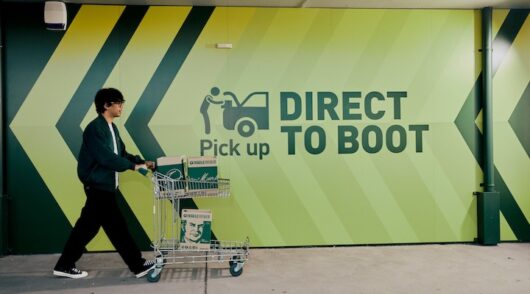Australian retailers remain “vulnerable” to the slowdown in consumer spending and rising living costs, say retail lobby groups, in a subdued response to the Federal Budget.
Spokespeople from the soon-to-be-merged Australian Retailers Association (ARA) and National Retail Association (NRA) said that while the Budget’s “modest” cost-of-living measures were welcome, the Labor government missed an opportunity to support businesses.
ARA chief industry affairs officer Fleur Brown said the budget’s focus on hip-pocket relief across a range of programs may help bolster confidence, but it will be unlikely to deliver the support struggling retailers have been crying out for.
“It’s been five years of economic uncertainty for Australian retailers who are still weathering the consumer spending slowdown, coupled with ongoing and rising costs of doing business. More focused support is needed to ensure vulnerable businesses and small businesses in particular can survive and grow.”
That sentiment was echoed by NRA interim CEO Lindsay Carroll: “The budget contains some important household relief measures such as previously announced childcare support, however we are concerned about the need for long term solutions, including further energy bill relief and targeted incentives to support digital transformation and workforce development.”
Key features of the budget that the two groups consider could potentially impact retailers are:
- Minor tax relief reducing the first tax threshold from July 1 next year, which would provide an extra $268 a year to the average worker then, rising to $536 in mid-2027.
- General cost-of-living support, including increased funding for prescriptions, more bulk-billed GP visits and reduced student debt.
- A guaranteed three days of subsidised childcare support each week.
- An extension of energy bill relief of $150 to the end of this year for households and small businesses.
- Addressing unfair, excessive card surcharges, including preparations to ban debit card surcharges, which will deliver lower-cost payments.
- A long-term commitment to investing $17.1 billion over a decade to boost supply chain resilience, improving freight efficiency through road and rail projects, including Queensland’s Bruce Highway.
Support for small business lacking
The ARA and NRA criticised the absence of support for business and productivity growth in the Budget.
“Small business owners have been in the trenches, fighting to survive,” said Brown. “It’s disappointing there seems to be more funding in this budget to enhance red tape and regulation compliance than to educate or relieve businesses of that administrative burden. We are disappointed to have uncertainty around the instant asset write-off, which is not accounted for in the budget.
Carroll said the retail industry needs ongoing government support to maintain stability and protect jobs.
“Retailers face persistent cost pressures – from rising leasing, energy, transportation and insurance costs to supply chain impacts. Our retailers are also having to compete with ultra low-cost global operators who don’t pay taxes or employ Australians. We can’t have an economic recovery without a retail recovery, and we need to make sure they have the means to compete.”
Food manufacturers concur
Food and grocery producers delivered a similar verdict.
In an unattributed statement, the Australian Food and Grocery Council (AFGC) said it welcomed the government’s commitment to easing financial pressure on households, but stressed that lasting relief for Australians depends on “a strong, viable domestic manufacturing sector that can keep shelves reliably stocked with affordable products”.
Cost-of-living support works best when paired with a robust cost-of-doing-business agenda, the council said.
“A cost-of-doing-business agenda would bring in coordinated actions that reduce the financial and regulatory strain on essential industries – boosting efficiency, resilience and competitiveness.”
The council said it seeks government tax incentives to modernise processes in the industry through automation and digitisation, further investment in a more resilient transport infrastructure less susceptible to natural disasters and disruptions, access to “stable, affordable energy” for manufacturers, and addressing workforce shortages, particularly in regional and rural areas.
“The AFGC looks forward to continued collaboration with the government on delivering both cost-of-living relief and long-term industry resilience.”






